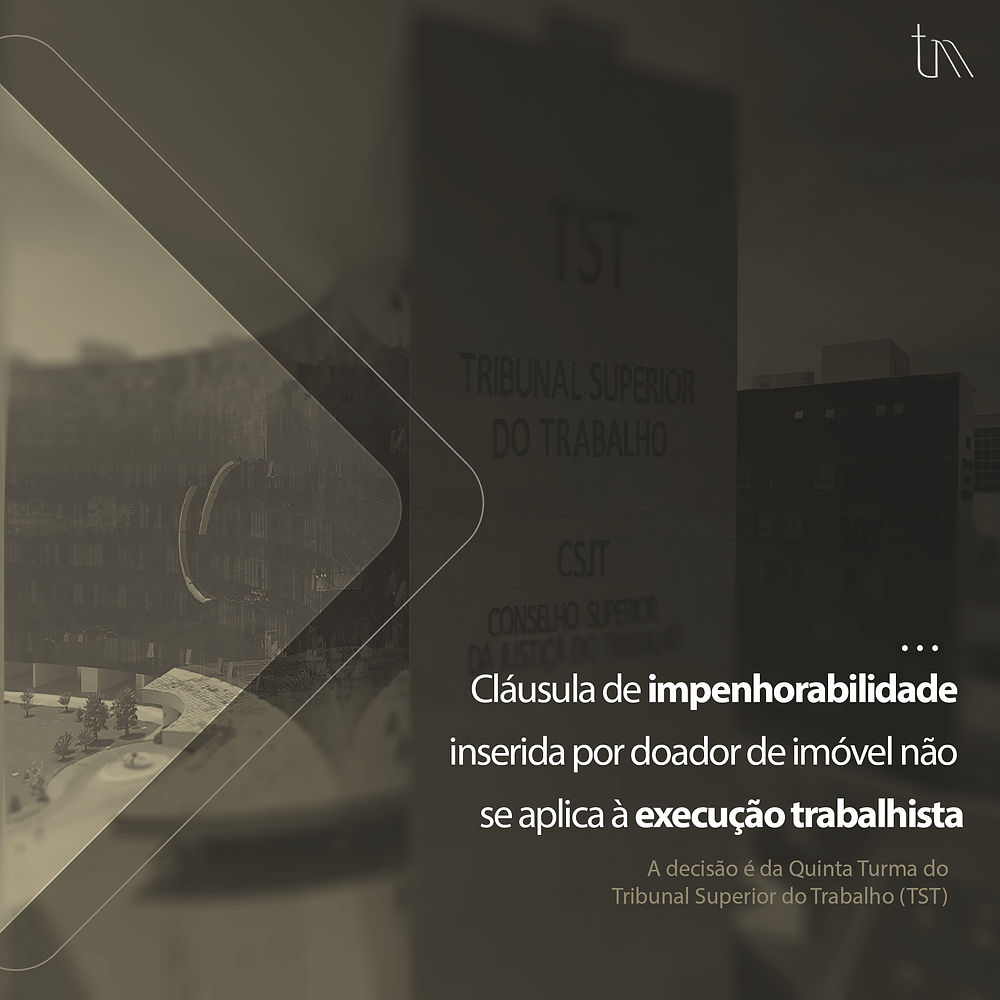On May 21, 2020, the fifth class of the Superior Labor Court (TST), ratified the understanding that the non-foreclosure clause inserted by the donor of the property has no applicability in the execution of Labor debts.
The context of the decision is based on a labor complaint in which, at the enforcement stage, the first-degree Court ordered the claimant to analyze the real estate registrations existing in the process and indicate which property or properties he intended to seize. However, it was found that half of the properties had been transferred to the partner through donation, with a clause of non-foreclosure registered before the proposal of the action. Therefore, the judge dismissed the application for attachment.
When examining the facts, the fifth class of the TST understood that the non-foreclosure clause does not prevail when it comes to labor enforcement, as provided for in Article 30 of the Tax Enforcement Law. In fact, Article 889 of the CLT provides that, in case of omission, the provisions of the law on tax executions must be applied.[1]
[1] to the procedures and incidents of the enforcement process, the precepts that govern the process of the Tax Executives for the judicial collection of the active debt of the Federal Public Treasury are applicable, insofar as they do not contravene this title.
Check out the decision:





